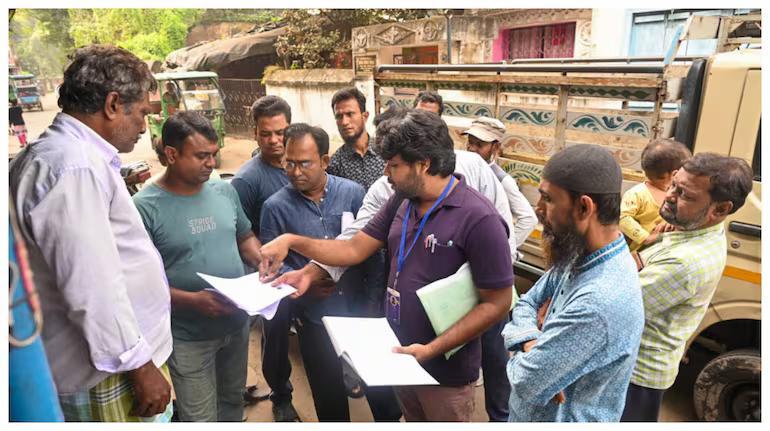
EC to use AI tools to detect fake, deceased voters in Bengal SIR
The Election Commission of India (ECI) has taken a significant step towards ensuring the integrity of the electoral process in West Bengal. In a bid to prevent the inclusion of fake or deceased voters in the electoral rolls, the ECI will deploy Artificial Intelligence (AI)-based systems during the Special Intensive Revision (SIR) in the state. This move is expected to enhance the accuracy and transparency of the electoral process, and it is a welcome development in the run-up to the upcoming elections.
According to a senior official, the AI-based systems will be used to analyze facial similarities across photographs to identify individuals who may be registered at multiple locations. This technology will help to detect and eliminate duplicate or fake voter registrations, which can be a significant problem in many parts of the country. The use of AI in this context is a significant innovation, as it will enable the ECI to process large volumes of data quickly and efficiently, and to identify patterns and anomalies that may not be apparent through manual verification.
However, the ECI is not relying solely on technology to verify the electoral rolls. Booth-level officers will still conduct door-to-door visits and take photographs of voters for verification purposes. This approach will provide an additional layer of scrutiny and help to ensure that the electoral rolls are accurate and up-to-date. The combination of AI-based analysis and manual verification will provide a robust and reliable system for detecting and eliminating fake or deceased voters.
The use of AI in electoral processes is not new, but its application in the context of voter verification is a significant development. In recent years, AI has been used in various aspects of election management, including voter registration, poll monitoring, and results analysis. However, the use of AI to detect fake or deceased voters is a critical application, as it has the potential to prevent electoral fraud and ensure the integrity of the democratic process.
The deployment of AI-based systems in West Bengal is particularly significant, given the state’s history of electoral controversies. In the past, there have been allegations of voter fraud and manipulation, which have undermined the credibility of the electoral process. The use of AI to detect and eliminate fake or deceased voters will help to address these concerns and ensure that the electoral process is fair and transparent.
The ECI’s decision to use AI-based systems in West Bengal is also a reflection of the commission’s commitment to leveraging technology to improve the electoral process. In recent years, the ECI has invested heavily in technology, including the development of online voter registration portals, mobile apps for voter verification, and data analytics platforms for election monitoring. The use of AI in voter verification is a natural extension of these efforts, and it demonstrates the ECI’s willingness to embrace new technologies to enhance the electoral process.
The benefits of using AI in voter verification are numerous. Firstly, it will help to prevent electoral fraud by detecting and eliminating fake or deceased voters. Secondly, it will enhance the accuracy and transparency of the electoral process, which is critical for maintaining public trust in the democratic system. Thirdly, it will help to reduce the administrative burden on election officials, who will be able to focus on other critical aspects of election management.
However, there are also some challenges associated with the use of AI in voter verification. For example, there may be concerns about the accuracy and reliability of the AI-based systems, particularly if they are not properly calibrated or validated. Additionally, there may be issues related to data privacy and security, particularly if the AI-based systems are not designed with adequate safeguards to protect sensitive voter information.
To address these concerns, the ECI will need to ensure that the AI-based systems are properly designed, tested, and validated before they are deployed in the field. The commission will also need to provide adequate training and support to election officials, who will be responsible for operating the AI-based systems and interpreting the results. Furthermore, the ECI will need to establish clear guidelines and protocols for the use of AI in voter verification, including procedures for addressing errors or discrepancies that may arise during the verification process.
In conclusion, the ECI’s decision to use AI-based systems to detect fake or deceased voters in West Bengal is a significant development that has the potential to enhance the integrity and transparency of the electoral process. The use of AI in voter verification is a critical application that can help to prevent electoral fraud and ensure that the democratic process is fair and reliable. While there are some challenges associated with the use of AI in this context, these can be addressed through careful design, testing, and validation of the AI-based systems, as well as adequate training and support for election officials.






